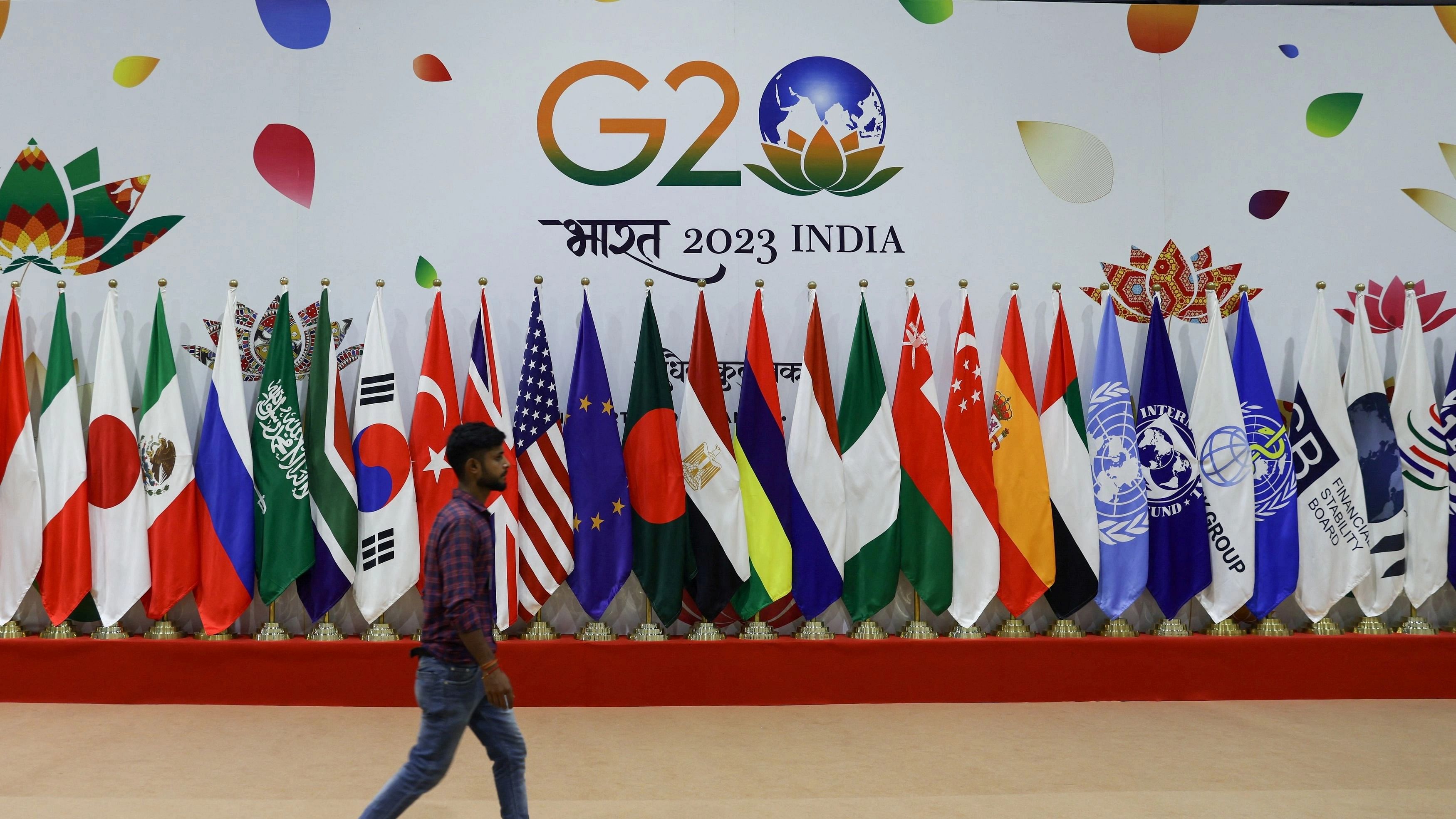
A man walks near flags ahead of G20 Summit in New Delhi, India, September 8, 2023.
Credit: Reuters/Anushree Fadnavis
Terming terrorism as “one of the most serious threats”, the G20 Declaration on Saturday called for strengthening “efforts to increase the effectiveness of international cooperation” to deny terrorist groups safe haven, freedom of operations, movement and recruitment, as well as financial, material or political support.
The G20 nations also pledged to support the “increasing resource needs” of the global money laundering and terrorist financing watchdog the Financial Action Task Force (FATF) and FATF Style Regional Bodies and “ encourage others to do the same”, including for the next round of mutual evaluations.
Describing “all acts of terrorism” as “criminal and unjustifiable, regardless of their motivation, wherever, whenever and by whomsoever committed”, it said effective counterterrorism measures, support for the victims of terrorism and the protection of human rights are “not conflicting goals, but complementary and mutually reinforcing”.
The declaration condemned terrorism in all its forms and manifestations, including those on the basis of xenophobia, racism and other forms of intolerance, or in the name of religion or belief, recognising the commitment of all religions to peace. It also found fault with terrorist acts against critical infrastructure, including critical energy facilities, and against other vulnerable targets.
While noting that a “holistic approach” on the basis of international law can “effectively counter terrorism”, the declaration also expressed concern about illicit trafficking and diversion of small arms and light weapons while emphasising that international cooperation is “critical” to combat these phenomena, including export, import controls, and tracing.
On the FATF, it said the G20 nations remain committed to the “timely and global implementation” of the revised FATF Standards on the transparency of beneficial ownership of legal persons and legal arrangements to make it more difficult for criminals to hide and launder ill-gotten gains.
It also commended the FATF's efforts to enhance global efforts to recover criminal proceeds, in particular, the progress made by the FATF towards revising its standards on asset recovery and reinforcing global asset recovery networks.
“We reiterate the importance of countries developing and implementing effective regulatory and supervisory frameworks to mitigate risks associated with virtual assets in line with FATF Standards, especially for terrorism financing, money laundering, and proliferation financing risks,” it said.
“In this regard, we support the FATF's initiative to accelerate the global implementation of its standards, including the 'travel rule', and its work on risks of emerging technologies and innovations, including decentralised finance (DeFi) arrangements and peer-to-peer transactions,” the declaration added.
